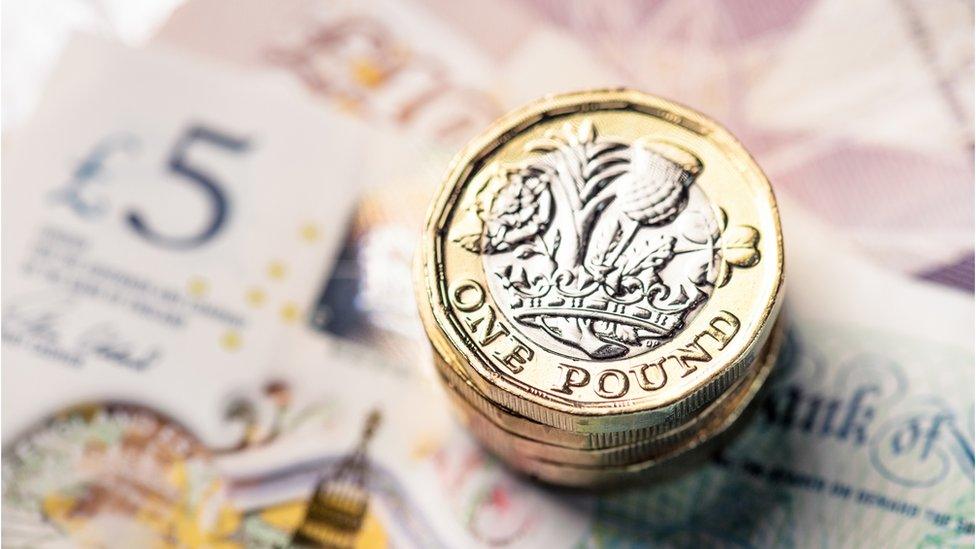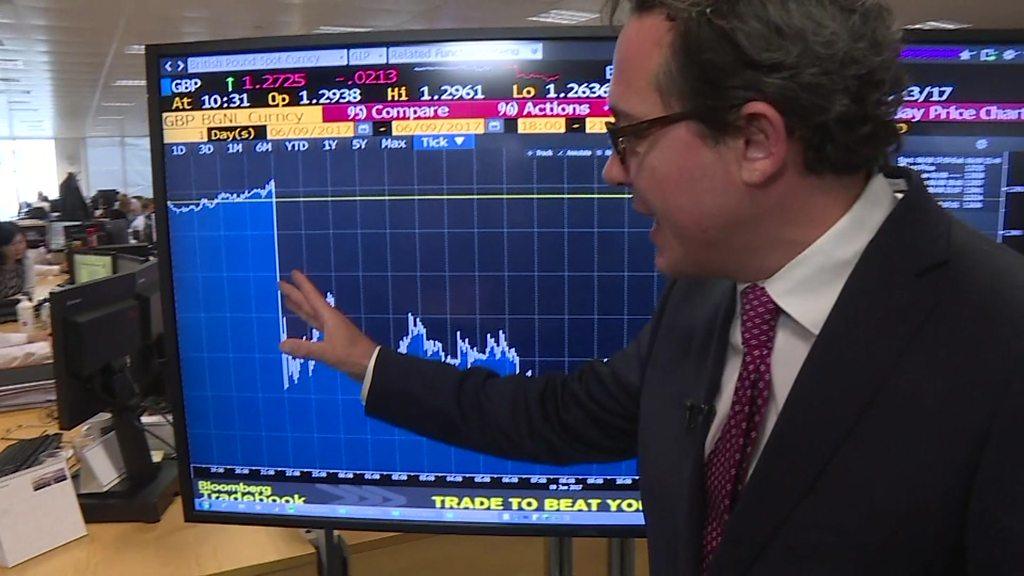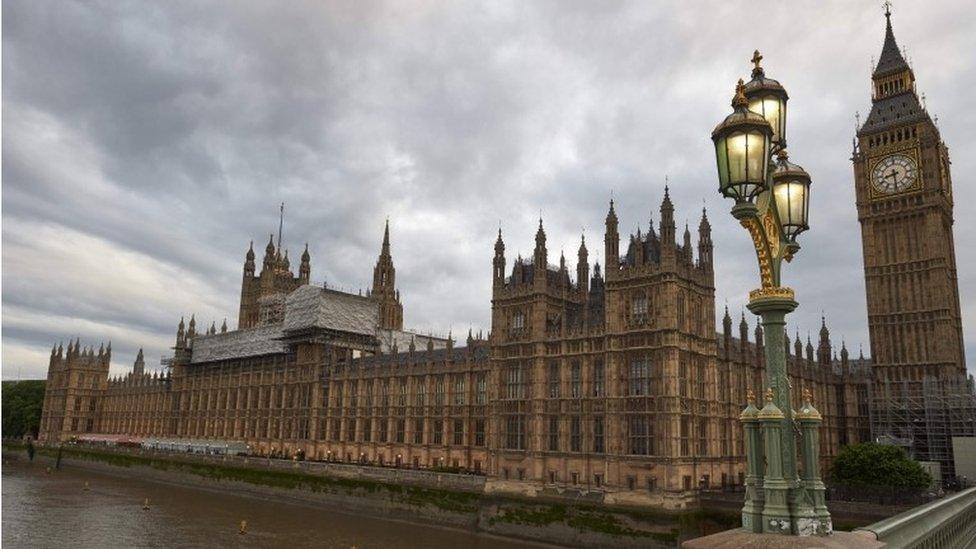What are the markets telling us about the election?
- Published

Up for sale: the pound
Traders are selling the pound, and buying some shares. Others they are dumping.
As politicians flounder for answers, the City's judgement on the election result tells us a much clearer story.
First, the pound.
Think of the value of the pound as the UK's share price. When it falls against other currencies, that reflects a lack of confidence in the UK economy by investors around the world.
So what has changed since yesterday?
Austerity
Clearly those investors feel less certain that the Tories will be able to manage the economy well. Stalling wage growth and higher inflation - partly as a result of the weaker pound itself - is already adding to that uncertainty.
Last month, inflation overtook wage growth for the first time since 2014.
Quarter-on-quarter growth in GDP has fallen to the lowest rate in the G7 group of countries.
But following the election result there's now also speculation about a relaxation of austerity: a longer timescale for balancing the government's budget. That sort of thing doesn't go down well with foreign investors, who like to see a disciplined approach.
However, some analysts expect the pound to recover in the days and weeks to come if the possibility of a "softer" Brexit looks likely. If the DUP insists on the sort of deal that Norway has with the EU as the price of its support for the Tories, for example, sterling is likely to benefit.
Ultimately the value of the pound matters, because, in a country that runs a trade deficit, we rely on foreign investors to keep the economy afloat.

The City thinks the housing market will stagnate
But a weaker pound isn't all bad news. It makes our exporters more competitive, because to buyers in other countries, the price of their products has suddenly got cheaper.
That's why companies like BAE Systems, Burberry and GlaxoSmithKline are seeing their share prices rise.
However, smaller companies - and those which depend on the spending power of the UK consumer - are suffering.
Our spending with companies such as Next, the Restaurant Group, Easyjet and Dixons Carphone is discretionary. So the fact that all their share prices have fallen means the City believes we are even more likely than we were to rein in our spending.
Remember personal spending makes up about two-thirds of all economic activity.
Housebuilders have also been hit, with shares in suppliers like Howdens and Travis Perkins being marked down. With the property market already slowing, it appears the City believes house prices are likely to go sideways over the next couple of months, if not down.
- Published9 June 2017
- Published9 June 2017

- Published9 June 2017
